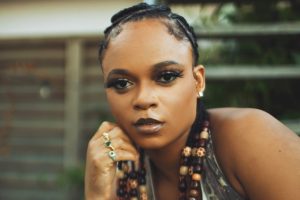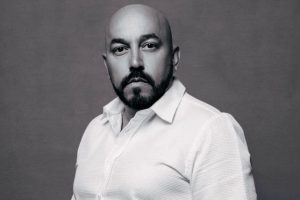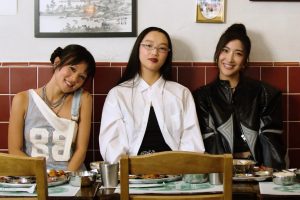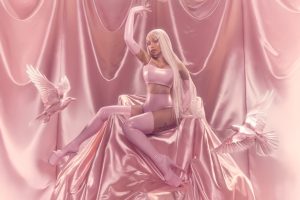Lila Iké Interview On Treasure Self Love & Caribbean Music Awards
A shining beacon of consistency and success for women in the contemporary reggae scene since the turn of the 2020s, Jamaican multihyphenate Lila Iké, 31, has, at long last, unveiled her debut full-length studio album. Titled Treasure Self Love, the new LP — which arrived on Aug. 22 via her own Wurl Ike Records, Protoje’s In.Digg.Nation Collective and Ineffable Records — finds Iké eschewing the poignant sociopolitical commentary of 2020’s breakthrough The ExPerience EP in favor of much more personal ruminations on navigating mental health struggles, in a world that demands a constant balance of militancy and femininity from its women. Featuring a mélange of cross-genre collaborators (H.E.R., Joey Bada$$ and Masicka) and nods to pillars of Jamaican music (Peter Tosh, Patra and Garnett Silk), Treasure Self Love further solidifies Iké’s knack for bridging generations of music listeners through her piercing lyricism and earthy, grounded tone. Less than a week after sharing Treasure Self Love (Aug. 28), the Manchester Parish-hailing star won her third consecutive Caribbean Music Award for female reggae artist of the year. She’s the only artist to win the category since the ceremony’s inception — a testament to her dominance and allure, with or without a formal LP. “My first Caribbean Music Award was the first time I’ve ever won an award that’s directly tied to my music,” she gushes. “It’s amazing to be celebrated for what I’m doing alongside a lot of my inspirations, like Buju Banton and Sizzla Kalonji. It felt great seeing other Black Caribbean people go up and collect their awards and be celebrated in our own communities.” In several ways, Iké’s third Caribbean Music Awards victory is a stamp on her latest career chapter. No longer with RCA Records after a four-year stint with the label — and on the precipice of a Coney Island show with Kabaka Pyramid (Sept. 27) and a few additional North American concerts — Protoje’s protégé stands wiser and more self-assured than ever before. From bouncy dancehall riddims and hip-hop production inflections to tender country and western guitar licks, Treasure Self Love distills Iké’s wide range of childhood music into a succinct 11-track study of achieving wholeness by unflinchingly examining the darkest parts of your past. Below, Iké speaks with Billboard about her debut album, playing her first solo Reggae Sumfest show, and how her bipolar disorder diagnosis shaped the album’s creation. When did your working relationship with RCA end? When did you sign with Ineffable? [I left RCA] late last year and started working with Ineffable immediately after. They came on board when we did the second single, “Fry Plantain,” [which dropped in November 2024]. It was natural. RCA served the purpose for what it was, and it was time to start a new chapter. How would you compare the creative process for Treasure Self Love to that of The ExPerience EP? I started working on The ExPerience during COVID. It was a lot of me being in the studio at home working with people I normally work with here in Jamaica: me, Proteje and a couple of our in-house producers. For Treasure Self Love, I was free to travel wherever. I was also signed to RCA at the time, and they put me in rooms with different producers I wasn’t necessarily familiar with. I’d say I was a bit more involved and paid attention to more things as it relates to the production of the music this time around. I spent a lot more time working on the music, which allowed me to do more than just write the songs. Did you feel any particular pressure around this being your debut full-length album? [The ExPerience], for my merits, did really well, and people connected with it. Because I toured that one EP for five years, along with other collaborations, it cemented me in the industry as a trusted artist whom people accepted they could be fans of. Personally, I felt that my first album needed to be amazing, especially since it’s been five years. No matter what I’m working on, I always have that pressure on myself to meet the expectation of greatness. But I also understood this didn’t necessarily feel like a debut album to the public; a lot of people were like, “Didn’t she already have an album?” Looking back, I really shouldn’t have taken this long to put out an album. It wasn’t a deliberate effort; life just happened the way it did. But it’s also not like I disappeared after dropping the EP. Did you find it challenging to focus on your own experiences on Treasure Self Love instead of prioritizing broader social commentary? The EP had more social commentary in it because, at the time, those were things that I wanted to speak on. Not that I don’t want to comment on those right now, but I think music is a natural relationship between an artist and their inspiration, which usually has a lot to do with what’s going on with them personally. For [Treasure Self Love], it was more of me going within myself and speaking on emotional experiences I’ve had because, at that time, that’s what was real to me. I discovered a lot about myself. I learned more about the mental struggles that I have endured my whole life. I got diagnosed with bipolar disorder. While dealing with all of that, I learned to truly treasure self-love. There are musical nods to Jamaican music icons from Peter Tosh to Patra. Why was it important for you to pay homage to the greats across this album? I feel like I’m always paying homage to my culture and the people who laid the foundation for what’s going on in Jamaican music right now. Songs like [2020’s] “Second Chance” and “Thy Will” were both sampled from Dennis Brown. I like to use music that inspired me on my journey and put my own twist on it. A lot of things also just happen; it’s never a deliberate effort.











